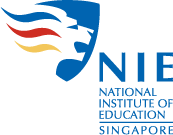Class of 2018 valedictorian and freshly minted teacher, Lin Siyue, talks about the real-life lessons that go beyond her NIE textbooks.
Lin Siyue was among the first batch of student teachers to graduate from NTU-NIE’s Teaching Scholars Programme (TSP) with a Bachelor of Arts (Education) this year. The all-rounder had also walked away with four of the most coveted awards available to her cohort – the Lee Kuan Yew Gold Medal for outstanding proficiency in her programme of study and for attaining Honours (Highest Distinction); the Association of Mathematics Educators Book Prize for best performance in teaching Mathematics; the Tan Poey Quee Practicum Book Prize for best performance in teaching practicum; and the Victor Neo Book Prize for best performance in English Language. | Read More |
Becoming a teacher had always been in Siyue’s blood. “I’ve had really wonderful secondary school teachers back in Methodist Girls’ School, who showed great care and concern for my well-being, far beyond my academics. They taught me how to manage my time, be a good leader and to show love to all. Whenever I reflect on how much my teachers have done for me, it always makes me want to have a similar influence on the next generation of students,” she said.
Surprisingly, the ace student wasn’t always a goody two shoes. “I used to fall asleep during Physics because I found the lessons really boring. On one occasion, I found myself arguing extensively with the teacher over an MCQ question until she said to me, ‘Siyue! Every day you fall asleep and now you want to argue with me?’ That encounter not only taught me to pay closer attention in class, I made sure always to have activities in class to keep my students awake!” she laughed.
As a TSP scholar, Siyue had opportunities to travel for a teaching apprenticeship in California, complete a semester exchange in Cambridge University, present a conference paper in Auckland, and learn how national initiatives were implemented through a local internship. While the exposure has prepared her for education service and working in classrooms, Siyue felt the life-changing lessons came only when she stepped out as a real teacher.
“A challenge for me was to put aside my pride. When I first came into NIE, I was rather confident of my own teaching abilities, and was reasonably certain that I could make a positive impact on my students. However, I increasingly realised how much more I had to learn and improve on in terms of classroom management and subject-specific pedagogy. For example, things that sounded good on lesson plans did not always materialise. There were many occasions when I could not finish my lesson on time, or when classroom activities did not yield the desired results,” she shared.
Siyue recalls two personal encounters that had left a lasting impression. “Once, I had a student who was absent during a test. Upon her return, she insisted that she had her parents’ permission to miss the test. When I tried to reason with her, she got up and left the class and I was at a loss whether to continue my lesson or leave the class to find the student. I later learned that this student had been struggling with an eating disorder, and the experience taught me the importance of understanding each student as an individual, instead of jumping to conclusions or labelling them as problematic.
She continued, “I had another student who was extremely fond of asking questions. I thought she was endearing, and was very pleased at her enthusiasm. However, she revealed to me one day that her friends called her ‘irritating’ for asking too many questions. I was glad I had a chance to intervene and assure her that her questions had often benefitted her classmates as well. Thankfully, the student continued to be as enthusiastic in class, but the whole episode showed me just how much a teacher’s encouraging words mattered to students.”
Today, Siyue is deeply grateful to be in a position of positive influence. “For me, the greatest moments in teaching happen whenever students come up to say ‘thank you’. As a new teacher, my tendency is to want to be well-liked by my students. Given the higher priority to help students to learn and grow, this sometimes means making unpopular choices in the classroom. Some say you must be stricter at the start so students don’t take advantage, while others say that you should win their hearts first and then they will listen to you when you’re strict. I guess this is something I need to figure out on my own!”





